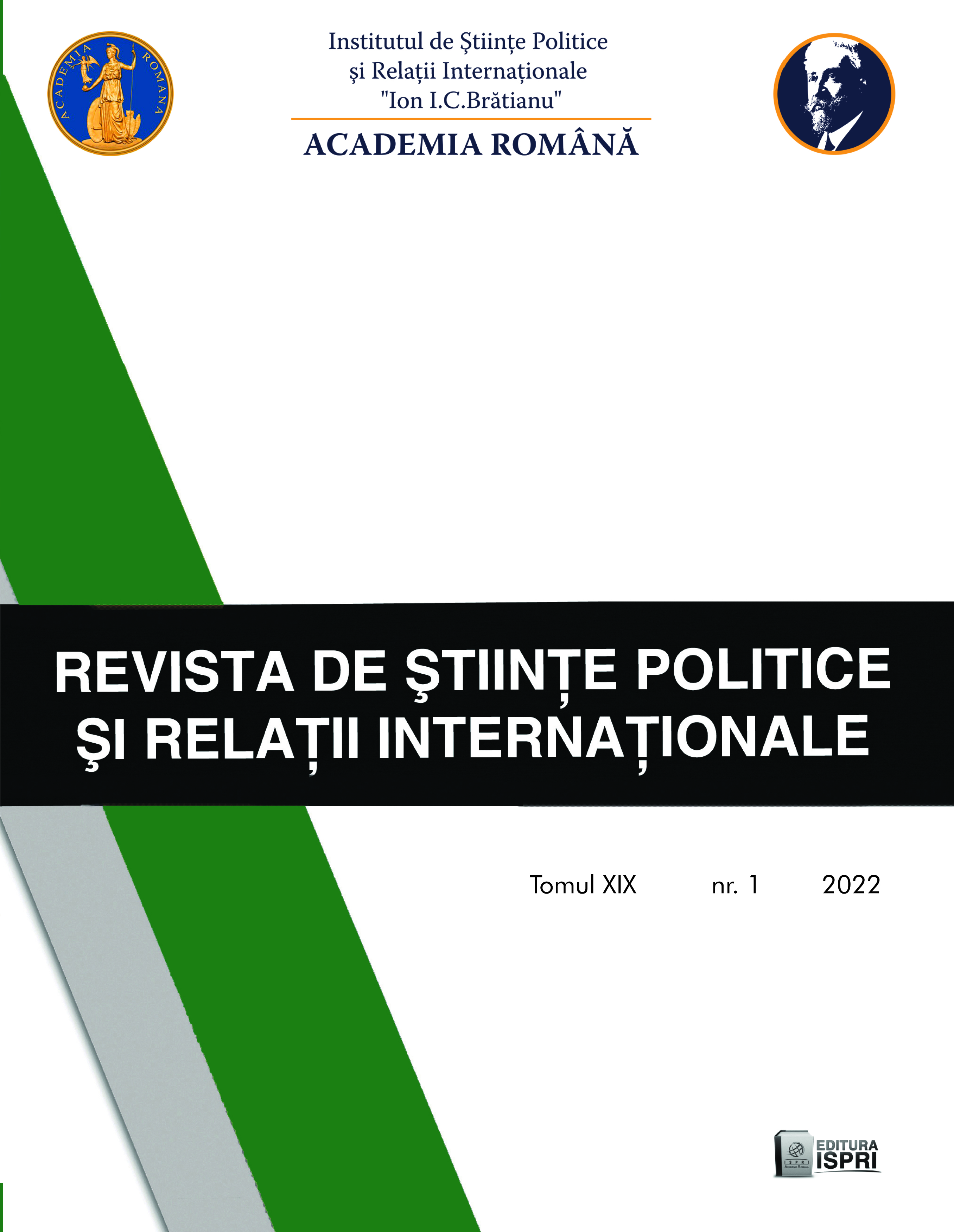TEZA CONVERGENȚEI IDENTITĂȚII NAȚIONALE ȘI RELIGIOASE DUPĂ DOMINAȚIA ATEIST COMUNISTĂ. PERSPECTIVA ROMÂNEASCĂ ȘI EUROPEANĂ ASTĂZI
The Thesis of the Convergence between National and Religious Identity after the Atheist Communist Domination. The Romanian and European Perspective Nowadays
Author(s): Henrieta Anișoara ȘerbanSubject(s): Politics and religion, Politics and society, Sociology of Religion
Published by: EDITURA INSTITUTULUI DE ȘTIINȚE POLITICE ȘI RELAȚII INTERNAȚIONALE ”Ion I. C. Brătianu”
Keywords: national identity; religious identity; atheism; civic attitude; social issues and climate issues;
Summary/Abstract: The paper addresses the thesis of the convergence of national and religious identity following the communist atheist dominance, in Romania and Europe. This specific research interest is investigated in the light of the sociological data gathered from diverse opinion polls. The perspective of religious identity as a founding, or at least consolidating, factor for national identity has been less "visited" lately. Terrorist events have brought fundamentalism, intolerance and violence to the fore. Discourse and the religious trigger of violence have often been correlated, and yet the correlation between religion and violence is not absolutely necessary. There are alternatives: we see at the level of discourse the possibility of a more or less vindictive wording, while the imperative "Blessed are the peacemakers!" and with a civic attitude and action generating rather hopes and renewed solidarities. Actually, one may notice nowadays a more fortunate correlation of religious principles and values with social security themes and with climate change themes. Pope Francisc is a promotor of change in this respect and a significant contemporary global actor. In the Romanian case, history has shown that religious identity has played a very important role in the constitution of the Romanian State, in a dissidence during the communist regime, but also, paradoxically, in certain cases, in a collaboration with security and the communist regime. Provided this historically confirmed inter-relation, in contemporary times, in the Romanian case, we see indeed a convergence of the national and religious identity and a confirmation of the announced thesis.
Journal: Revista de Științe Politice și Relații Internaționale
- Issue Year: XIX/2022
- Issue No: 1
- Page Range: 27-56
- Page Count: 30
- Language: Romanian

